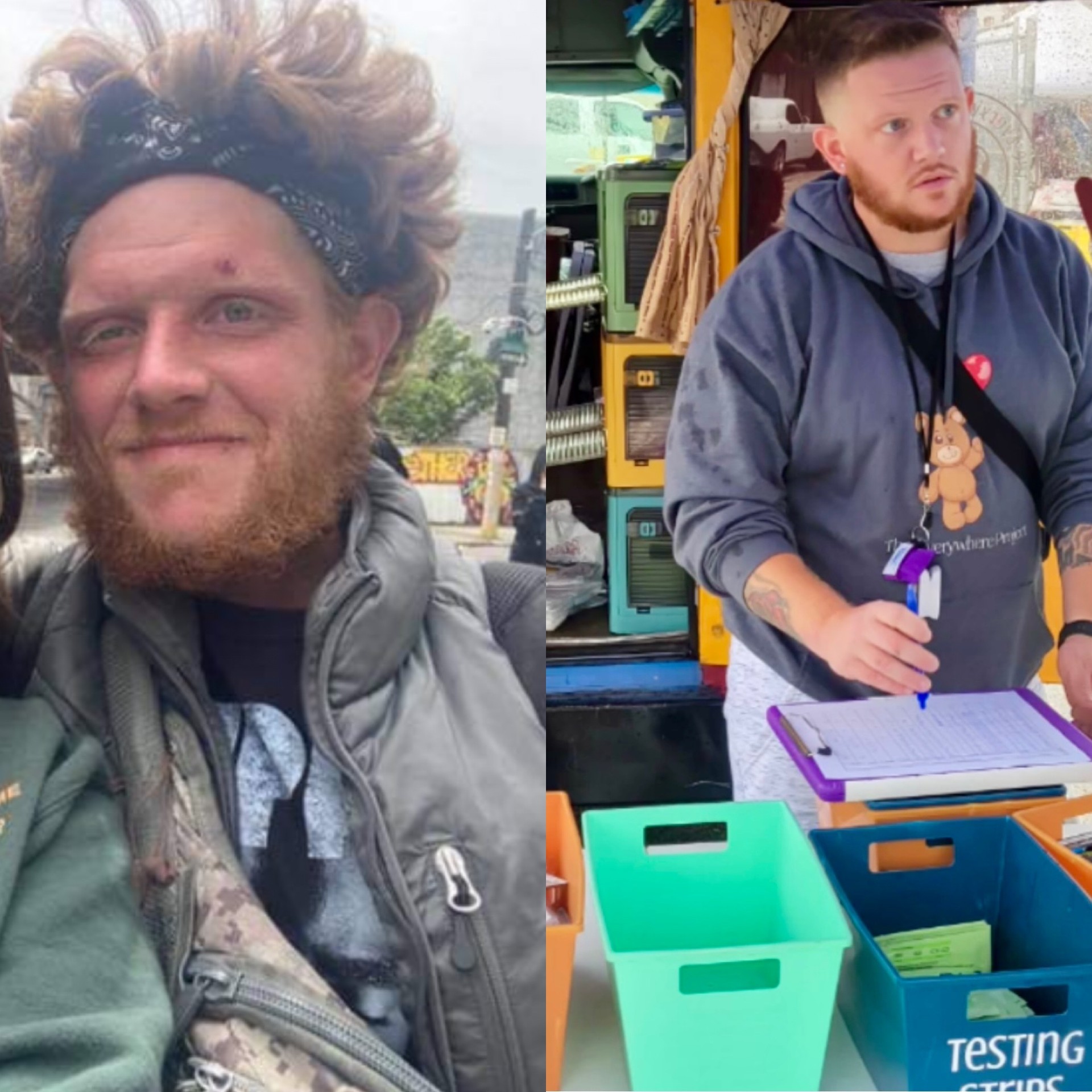
By: James Sherman
When I first came to Prevention Point Philadelphia (PPP), I had abscesses on both of my wrists. I was hesitant to go to the hospital because of a previous stigmatizing experience. An outreach worker in McPherson Square Park mentioned that I could get wound care at PPP. I didn't go.
Two days later, the same outreach worker once again encouraged me to go. I came to the PPP Wound Care Clinic and was treated kindly. Both of my wrists were developing abscesses which needed draining and antibiotics to fight infection. This was around the time that xylazine was entering Philadelphia's drug supply, and there were a lot of things happening to our bodies that we didn't understand. At PPP, I felt like someone actually cared about my well-being. I had forgotten what that felt like. They treated my wrists and gave me antibiotics and wound care supplies. They also suggested I get an HIV test and gave me information about how to stay negative.
HIV Prevention and Supply Distribution saved my life. HIV prevention bridges the gap between people in active use and those ready for treatment. Through my many failed attempts at getting sober, HIV Prevention programs kept me safe and offered me connection with people who reminded me I was a human and that I mattered. Access to HIV prevention resources ensured that I could prevent some of the dangerous consequences of using drugs when I wasn’t able to quit. Places like Prevention Point made me feel welcome.
In January 2021, after nearly two years homeless in Kensington, I got sober. I am fortunate that I made it out of my addiction. I am even more fortunate to have made it without contracting HIV. However, this is not the case for many of the people I was using drugs with at the time. Since becoming sober, I turned my life’s work into giving back to the community that I left, but am a part of, and always will be.

In 2022 I worked part-time at the Division of HIV Health (DHH) in the Philadelphia Department of Public Health. I helped implement a study that conducted surveys and HIV and Hepatitis C (HCV) testing among individuals who injected drugs. In the seven months that I was working on that study, I had to inform many of my friends in Kensington—individuals, humans, that I had lived with, used with, laughed with, cried with—that their HIV test had come back positive.
At the time, I didn’t really think about it. Emotionally detaching myself from those hard conversations made it a little easier to keep doing that important work. But since I stepped away from that role, I’ve been thinking about this more and more. It’s hard not to, with the state of politics and public health in Philadelphia now. It makes me grateful for a place like Prevention Point who offers these resources.
"Prevention Point is keeping people alive."
At the end of 2023, I was working as a healthcare case manager for PPP. I would often post up in the Love Lot, keeping an eye out for participants I needed to find. In speaking with participants at the Love Lot, I realized people from all walks of life use this service. Many Philadelphians believe that people who are using drugs on the streets of Kensington are the only people utilizing PPP’s HIV Prevention services, but that is a big misconception. I have spoken to people who have jobs, housing, children, cars, 401K’s, pensions, their own businesses, and so much more.
Prevention Point is keeping people alive. They don't discriminate and staff welcome anyone to utilize their services. While PPP is best known for its HIV Prevention and Supply Distribution program, it offers a multitude of other services such as case management, medical care, HIV/HCV testing services, bathroom access, housing, food, and the list keeps going. The beautiful thing about PPP is that you can use one service, multiple, or simply relax in the Drop-In Center on a sweltering hot day. Sometimes HIV prevention supplies, an HIV test, or a cup of coffee is a way to open the door to a larger conversation about making positive changes.